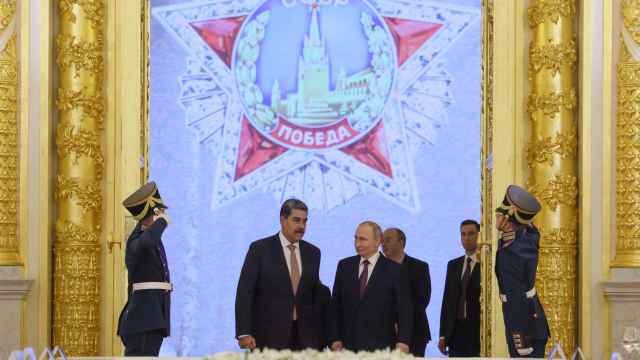The Cyprus banking crisis revealed just how deeply Russian business is distrusted in Europe. Russian depositors, both legal entities and private individuals, were hit the hardest by the European Union, which pressed the Cyprus government into accepting a tough austerity package. Almost all European media labeled Russian money harbored in Cyprus as corrupt or criminal. This perception that Cyprus is a haven for "dirty Russian money" was a major factor in the EU's willingness to let at least one major Cypriot bank go bust.
Russian entities and individuals have indeed constituted a large share of all the Cyprus depositors, but to punish all Russian depositors for Cypriot failings is patently unjust and perhaps illegal.
Many large Russian businesses are traded on international stock exchanges, publish their financial reports according to international accounting standards and count respectable international organizations among their shareholders. Cyprus is an attractive destination for businesses and depositors because it has common law, attractive corporate tax rates, mature legal, consulting and financial services and offers a perfectly legal means to structure and develop businesses. Many U.S., British and European companies are also registered in Cyprus and use its secure electronic banking for international transactions between various branches and representative offices elsewhere. Until recently, having a Cyprus office enabled Russian businesses to use international investor protection agreements, something in high demand in Russia.
As for the thousands of individuals with large deposits in Cypriot banks, the vast majority were not corrupt. There is a large, prosperous Russian community in Cyprus, and they are allowed by Russian law to have foreign bank accounts and keep their savings there. The Russian banking system is notoriously unreliable, and in the past 50 years Russians have seen their money confiscated, frozen, stolen and depreciated. This taught them to deeply distrust homegrown banks.
Russians' desire to keep their savings abroad can hardly be labeled criminal. One can undoubtedly find criminal and corrupt proceeds in any bank of the world, including those of Cyprus. So why are the problems of the Cypriot banks that had nothing to do with Russia now being solved largely with confiscated Russian deposits?
The answer to this question can be found in the negative global reputation of Russian business in general. Even though Russian business has made substantial progress in the past 20 years, its reputation remains tied to the 1990s. During the past decade, the image of Russian business has only gotten worse, helped by the rough practices of corporate raiders. It is not surprising, then, that Russians have a widely held reputation of being corrupt.
The Cyprus story is now almost history. The Russians will not recover their losses, but they have learned the very tangible cost of business reputation in the modern global environment. Thus, if Russian businesses and depositors don't want to pay for future economic crises, it should start working on its reputation now.
Fraser Cameron is director and Maria Ordzhonikidze is secretary general of the EU-Russia Centre, a Brussels nongovernmental organization promoting dialogue between the EU and Russia.
A Message from The Moscow Times:
Dear readers,
We are facing unprecedented challenges. Russia's Prosecutor General's Office has designated The Moscow Times as an "undesirable" organization, criminalizing our work and putting our staff at risk of prosecution. This follows our earlier unjust labeling as a "foreign agent."
These actions are direct attempts to silence independent journalism in Russia. The authorities claim our work "discredits the decisions of the Russian leadership." We see things differently: we strive to provide accurate, unbiased reporting on Russia.
We, the journalists of The Moscow Times, refuse to be silenced. But to continue our work, we need your help.
Your support, no matter how small, makes a world of difference. If you can, please support us monthly starting from just $2. It's quick to set up, and every contribution makes a significant impact.
By supporting The Moscow Times, you're defending open, independent journalism in the face of repression. Thank you for standing with us.
Remind me later.





